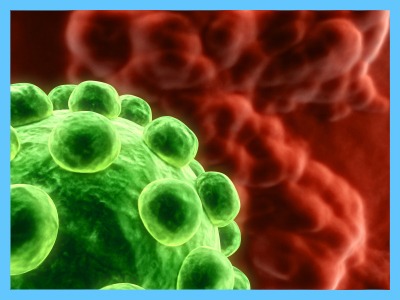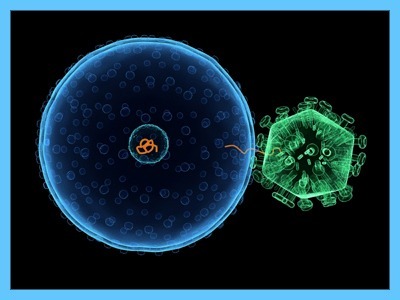What is HIV?
HIV (human immunodeficiency virus) is the virus that causes AIDS (Acquired Immuno-Deficiency Syndrome). By killing or damaging cells of your body’s immune system, HIV progressively destroys your body’s ability to fight infections and certain cancers. People diagnosed with AIDS may get life-threatening diseases called opportunistic infections, which are caused by microbes such as viruses, bacteria, or fungi. These infections do not usually make healthy people sick. Those with HIV/AIDS are also at an increased risk of developing certain cancers, neurological disorders, and a variety of other conditions.


In the United States, more than 980,000 diagnosed cases of AIDS were reported to the Centers for Disease Control and Prevention (CDC) between 1981 (when the first case was reported) and 2006. The CDC estimates that more than one million people in America may be infected with HIV and that as many as 15% may not know that they are infected.
HIV Testing
All sexually active individuals should get tested for HIV regularly. Anyone can contract HIV –– and it only takes one encounter to contract the infection. Still, certain groups such as gay/bisexual men, ethnic minorities, and inidviduals living in low income areas are at particular risk for contracting HIV and should consider getting tested more often. Also individuals with an STD such as syphilis, genital herpes, chlamydia, gonorrhea, or bacterial vaginosis, are more susceptible to and at higher risk for acquiring HIV infection during sex with infected partners.
HIV, unlike other STDs, requires a blood test to diagnose correctly. HIV blood tests monitor the presence of certain antibodies created in response to the infection. At many facilities, it’s next to impossible to deliver a definitive diagnosis until at least three weeks after contraction. At Same Day STD testing, though, we use the most sophisticated testing methods available, which can (in some instances) detect the presence of HIV a mere ten days after exposure. In general, we strive to deliver test results within two-to-five days after they’re administered.
Note, most of the time professionals will insist on conducting a second HIV test to corroborate the results of the first. False negatives and false positives are possible (though uncommon). Considering the seriousness of HIV, we recommend taking a second test to confirm initial diagnosis.
The sooner you get tested, the sooner you can seek out HIV treatment. And if you get tested at one of our facilities, our dedicated staff members will describe what your next steps should be and what your treatment options are.
Signs and Symptoms of HIV
HIV initially causes an acute illness with nonspecific or flu-like symptoms such as fatigue, headache, fever, and enlarged lymph nodes. Some people will not experience any noticeable symptoms. During this time period, the virus is present in large numbers and is carried throughout the body. HIV infects immune cells called CD4 T-cells (also called helper T cells) and slowly begins to decrease their numbers. The virus sets up house in places such as the brain and lymph nodes, where it will linger even during future drug treatment.
The patient’s immune system responds to the acute HIV infection by producing antibodies against the virus. In most people, the initial symptoms go away after a short time period. The patient may be apparently healthy for a decade or more, but behind the scenes HIV is still replicating and destroying CD4 T-cells. Eventually, the affected person’s immune system is compromised to the extent that they begin having symptoms such as persistently enlarged lymph nodes, weight loss, sweating, recurrent yeast infections, fever, herpes infections, rashes, and memory loss or difficulty concentrating.
In children who are infected with HIV at or before birth, symptoms may emerge within a couple of years. They may have delayed development and be frequently ill.
How is HIV Spread?
HIV is often transmitted through sex with an infected partner. The virus can enter the body through the lining of the vagina, vulva, penis, rectum, or mouth during sex. However, that’s not the only way a person can contract HIV. Any of the following scenarios could lead to HIV transmission:
- Contact With HIV Infected Blood
HIV can also spread through contact with infected blood. Before blood was screened for evidence of HIV infection and before heat-treating techniques were introduced to destroy HIV in blood products, such as factor 8 and albumin, HIV was transmitted through transfusions of contaminated blood or blood components. Today, because of blood screening and heat treatment of blood derivatives, the risk of getting HIV from such transfusions is extremely small.
- HIV Transmission Through Needles
In addition, it’s possible to contract HIV by sharing needles or syringes (such as with intravenous injection drug abuse), which can be contaminated with very small quantities of blood from someone infected with the virus. It is rare, however, for a patient to give HIV to a healthcare worker or vice-versa by accidental sticks with contaminated needles or other medical instruments.
- Mother-to-Child HIV Transmission
Infants can contract HIV from their pregnant mothers. Approximately one-quarter to one-third of all untreated pregnant women infected with HIV will pass the infection to their babies. HIV also can be spread to babies through the breast milk of mothers infected with the virus. If the mother takes the drug AZT during pregnancy, she can significantly reduce the chances that her baby will be infected with HIV. If doctors treat mothers with AZT and deliver their babies by cesarean section, the chances of the baby being infected can be reduced to a rate of one percent.
Treatment for HIV
Though HIV is a frightening disease, scientists are working diligently to find a cure. (And there’s renewed hope that one might be around the corner after a man in London was cured of HIV.) Additionally, medical professionals have made tremendous strides in HIV treatment. Often, the key to managing HIV is detecting it early –– which makes HIV testing all the more crucial. If you’re concerned about your sexual well-being –– or if you haven’t had a test recently –– then make time to get tested soon!
